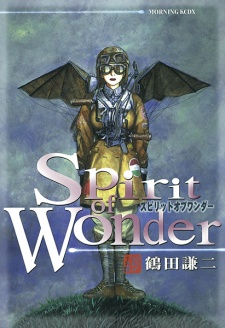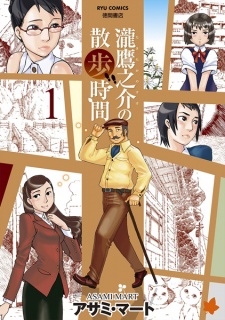Mar 28, 2024
*Spirit of Wonder,* even when making reference to scientific principles, is a collection that makes no pretense about being scientifically accurate. If anything, it banks on using its ridiculous jargon and long-winded explanations as part of the larger theme of exploring and daring to dream or experience fanciful, almost-impossible things. So when a group aspires to use a blimp to get to Mars, you put the rational part of your brain away and just let the group have their adventure and cheer them on. After all, going to Mars is cool, right? And hasn't every scientist or mathematician at some point had to ask, "But
...
what if we COULD do this," and then tried to do precisely that which they envisioned?
I obviously cannot speak for everyone, but it seems like we tend to forget about the sense of wonderment that we have in youth, where everything seems like a new adventure and you feel compelled to follow that trail to the end, regardless of whether it succeeds or not. I imagine that's part of the reason why so many of the main players in *Spirit of Wonder* are young people, either fashioning their own way through emotion or being told by crazed old scientists to partake in an experiment with wondered eyes. Within Tsuruta Kenji's painstaking attention to paneling, character and face models, and spatial depth, he puts forth the request to experience *Spirit of Wonder* through equally-wondered eyes, watching the characters interact with the world. Rooms are messy, buildings are beautiful, and outer space is a twinkling blackness. The people become curious, they try, and occasionally, they fail. Such is the way things work. But failure is not the same as being sad, and Tsuruta makes this clear. Even in one of the manga's more dour endings, the kernels of hope always remain behind.
This is ultimately why, no matter how many flights of science-fiction fancy the material goes on, the underlying heart of the manga is always on its characters. In each of the anthology's chapters and the larger three-part Miss China story, everyone answers the call to whatever awaits them. Daughters, lovers, and dreamers all venture into the ephemeral world of wonder, and though the time there might be fleeting, the impact lasts forever when they come out the other side--sometimes literally. The journey is scientific in origin, but the hypotheses' and experiments' findings are always human. It is not grand in any moral message, but it is sincere for its couple of dozen pages at a time. Perhaps that is why I find myself wanting to self-insert into this manga, a sentiment that I almost never feel. I want to be one of *Spirit of Wonder's* characters, not quite in the sense of being scientifically-minded or someone who doesn't pay their rent (maybe I'll get there, who knows?), but because with the way Tsuruta crafts his worlds, I want to experience and learn about what he creates. Much like with his art in *Memories of Emanon* basking in his best work feels like staying in that ephemeral place of wonderment for just a fraction of a second longer.
It's worth clinging to, I think.
Reviewer’s Rating: 8
What did you think of this review?
Nice
 0
0
Love it
 0
0
Funny
 0
0
Confusing
 0
0
Well-written
 0
0
Creative
 0
0Show all
























